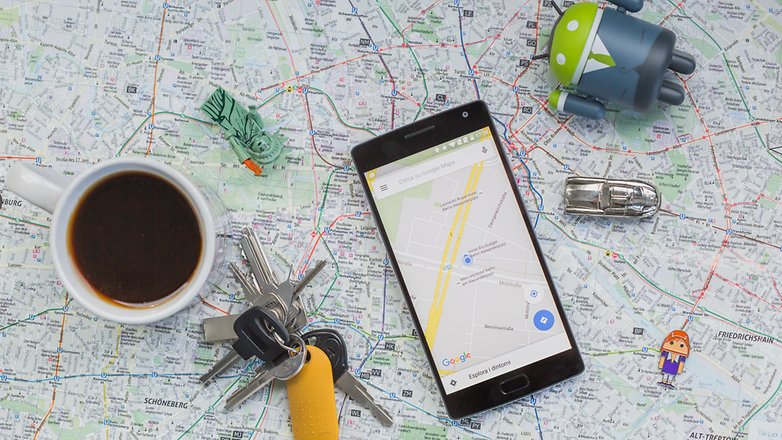From using some tools so much, we sometimes forget whether we are making safe use of them or not. A typical example of this is the smartphone's GPS. A recent incident that killed a fatal victim in Rio de Janeiro has raised the issue of security in services like Waze, Google Maps, Here and other similar apps. But can you trust the GPS of your Android smartphone?
According to electrical engineer Jos Roberto Pereira, developer of the first Brazilian GPS, the use of GPS applications should be cautious. And, yes, this is not written in the description of such applications in the Google Play Store or the App Store.

Use the navigation app in conjunction with other tools like Google Street View. / ANDROIDPIT
A few occasional cases, such as the death of a woman who entered a favela in the Rio de Janeiro metropolitan region after following wrong Waze information, question how much we can rely on navigational guidance and whether they should report routes considered dangerous, for example. In an official statement, the Waze team says it cannot make such a distinction between routes with respect to service users:
"It is difficult to prevent drivers from navigating to a dangerous region when this is the chosen destination, because people who live in these areas must also get home."
Another important factor in this question is the technician. In interview with National Journal, Engineer Jos Roberto Pereira stated that there is no software yet to assess risk criteria to define whether or not a hazardous area:
The app simply shows the way or shows your position. But he does not evaluate this risk criterion, whether the area is dangerous or not, he was not programmed for it. "
So, rely on a GPS service matter of common sense. Users should use such applications prudently and in conjunction with other tools to increase their own security. Also, keep in mind that apps like Waze learn from the user and save a lot of time from one place to another when avoiding busy or crowded streets. Already Google Maps is something that virtually every smartphone user uses at one time or another during the day as one of the most accurate location features on the market.
Avoiding Risks When Following GPS Applications and Equipment
Remember that GPS services are not 100% accurate, especially those like Waze which also relies on information from your network of users to function. Thus, in order for you to get the best out of this technology, some basic safety measures are required. Check out some tips below:
- Before leaving home or the office, do a Google Maps search to get an idea of the time it takes to get to your destination;
- Place the address in Google Street View and visually identify where you are going;
- When selecting the address in the browsing service, make sure it is correct. Pay attention if instead of an avenue the app showed a street with the same name, and vice versa;
- The more information you add to the service (street / avenue, number, zip code, city), the more accurate the search and route indication will be;
- Be wary if route directions have a very large arrival time difference and check the reasons for this;
- If you ever suspect that the way is wrong, ask! Inquire at public places such as gas stations, or contact a friend or family member who may know the region.
As stated by the Waze team, an application is unlikely to define an area as being at risk as its users can live in these areas and also need to get home. So use common sense!
What other measures do you suggest to avoid risks when following GPS applications and equipment such as Waze?
(tagsToTranslate) GPS safety of your Android smartphone (t) how to avoid risks while following GPS instructions (t) gps applications for android
